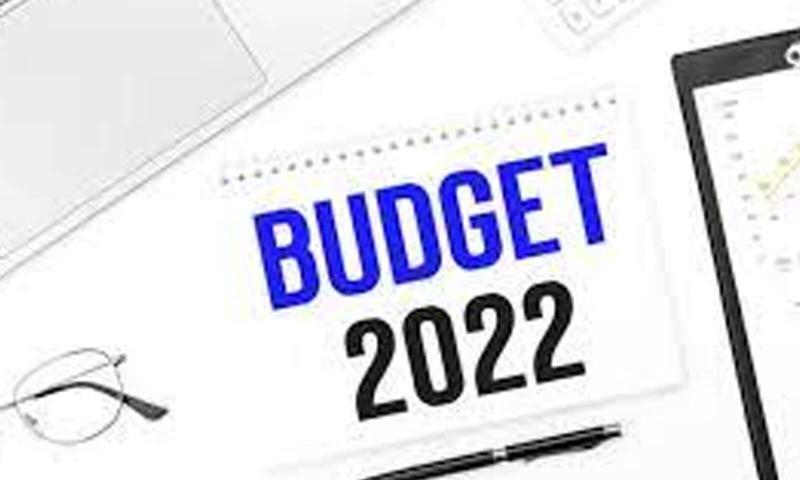
The Tech Panda asked the consumer electronics, drones, tech, and the manufacturing sectors about their expectations from the Union Budget 2022.
The pandemic has disrupted every business sector, and one thing that everyone wants from the Union Budget 2022 is to bring the economy back on track. Several sectors expect that the government will implement effective and favourable policies, to create a sound infrastructure and an ecosystem to support innovation.
Read more: Budget 2022 expectations: Health & wellness
With its expected focus on economic recovery, we can expect a further push towards boosting the startup ecosystem in the upcoming budget, particularly for companies that are working under the ‘Make in India’ initiative.
As India looks to the Finance Minister Nirmala Sitharaman’s Union Budget 2022, here’s the wish list from the different sectors.
Mandeep Arora, Managing Director, UBON
“This year, the government is expected to take a progressive step towards making India a hub for the manufacture and export of electronic devices. Consumer electronics product export incentives and low GST. At the same time, analysts expect import tariffs on certain components to continue to rise.
“I think it’s time to go beyond that, we believe that the budget needs to focus more on value creation, including special incentives and subsidies for consumer electronics and component manufacturing. We all agree that India has strong goodwill in the world market. The country will have immense growth opportunities by taking advantage of innovative new technological aspects that facilitate the lives and governance of its citizens. We want a stronger impetus for reinventing the Digital India campaign with better reach, faster, more efficient technology, and a planned schedule.”
Vipin Agarwal, Co-Founder, Candes

“With the budget approaching we expect the government to rationalize the tax slabs for the consumer durables. Also, to promote R&D and provide incentives for the local manufacturers. With Covid-19 affecting the supply and demand both, the industry seeks support from the government.”
Vikram Singh Meena, Founder, TechEagle
“A dedicated budget for drones in the healthcare sector by the Government of India in the 2022 budget is required to improve the sector and save lives. Drone delivery and air taxis require infrastructure policy in the urban landscape. Also, import duty exemptions or reductions shall be imposed on certain electrical and raw materials used in drone manufacturing. This might be done for a set number of years, with decisions being reviewed each year.
“As a result, corresponding items can be pushed to begin manufacturing during this time, creating an eco-system for India’s Drone Manufacturing Hub. A distinct department (not a ministry) shall be formed for emerging technology, possibly within the Ministry of IT, that would focus on the demands of UAVs as well, resulting in a more focused approach to UAVs.
“Most importantly, the central government should encourage increased use of drone technology in various departments, such as infrastructure, defense, healthcare, maritime, and railways. As a result, based on the Central Government’s experience, states will adopt the use of drones more quickly. Lastly, drones developed in India should be prioritized by the government.”
Vicky Jain, Founder, uknowva
“Incentivizing research and development of next-generation technologies like AI, ML, robotics, etc. could help leverage India’s cost-effective science and engineering talent to develop strategic capabilities in scientific and industrial research.
“Special provisions and schemes need to be introduced to increase digital education and relevant digitization to foster employment generation as well as re-employment. Another important area to focus on is the upskilling and reskilling of the existing workforce.
“There has been a lot of change in the way we operate and do business post COVID. It’s quite clear that the skill gap from education to corporate remains quite huge. This gap is now increasing with the AI-driven work culture setting in. Youth unemployment is close to 20% and that’s quite alarming. Adequate allocation for upskilling and reskilling is the need of the hour.”
Priyanka Salot, Co-founder of The Sleep Company
“Manufacturing startups have made a head start in exports, but need critical support in areas like obtaining international patents and a renewed focus on the logistics sector. As startups continue to innovate and explore new avenues of growth, the government can provide crucial support by streamlining the cumbersome compliance requirements and reducing GST on Make in India brands. The focus on encouraging growth must be encouraged incentivizing business deployment along with building a robust forward-looking business ecosystem.”
Khursheed Alam, Co-founder, Atmos Systems
“As a manufacturer of the warehouse automation systems, we rely heavily on raw material and with the high increase in raw material prices, it has become difficult to provide a solution at a reasonable cost.
“So, we would like government to focus on controlling the inflation in raw material prices and other factor is availability of electricity. Government should focus on generating more electricity and provide it at a better cost so that we industrialists can compete on the international market more effectively and efficiently.”
Sahil Dharia, Founder & Chief Executive, Soothe Healthcare
“A major simplification drive for instance, a flat GST rate will go a long way in creating an impetus for a cyclical bull run in the industry.Moreover, there are anomalies in GST, for example, in the feminine hygiene sector with GST on sanitary pads being ‘zero’ the input tax credit can’t be availed by industry, making the transaction tax inefficient thereby reducing the growth CAGR.
“Though manufacturing-based companies in India appreciate no Zero GST on sanitary pads, it is still significantly affected by high raw material and manufacturing costs. Hence, we look for some relaxation in this area.”
Read more: Budget 2022 expectations: EdTech